PATWA (Thread Work Of India)
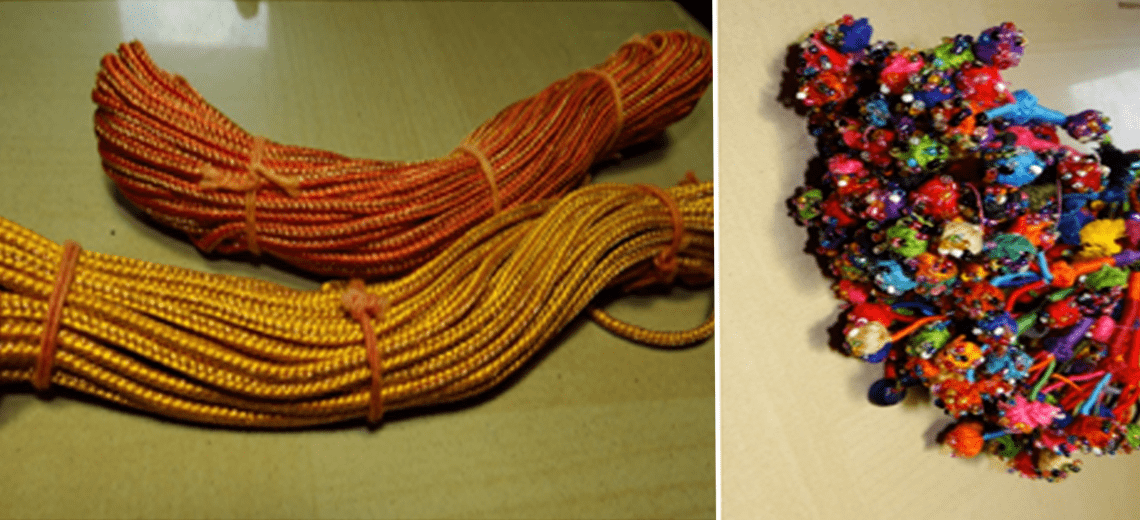
‘Patwa’ was derived from the Hindi word ‘pat’ meaning silk and people involved in the silk and cotton thread work are called ‘Patwa’. Verbal records state that Patwas originate from the heart of Lord Vishnu. In mythology there is a story which tells that at the time of the wedding ceremony of Lord Shankar and Parvati, there was no priest to perform the ceremony. A couple emerged from Vishnu’s chest and the male performed the priestly activities. After performing the wedding ceremony, Lord Vishnu told him to create silk thread jewelery for his livelihood. Thus the group of people is known as Patwa. They are said to have migrated to Maharashtra, Rajasthan, and Gujarat. These artisans have a history of traveling from village to village to sell their thread wrapped jewellery in addition to other accessories and knick knacks like nail polish, wooden toys, or other items they have bought to resell. Patwa is the jewellery these artisans make by wrapping thread around plastic or wooden forms. The jewelry making art originated many years ago and has been successful in catching the attention of women since then.
Presently Patwas are primarily sourced from Rajasthan, India; there is no evidence of competitive production occurring in Asia or Africa. Patwas travel to Delhi, early in the morning, to sell their wares at the wholesale market on the streets at Sadar. Apart from Rajasthan it is practiced on small scale in Maharashtra they are primarily located in Mumbai, Thane, Yavatmal, Nagpur, Nasik, and Pune.
Patwas are farmers by profession and are jewelry makers by caste. They also sell other items including cutlery, costume jewelery, toys and some clothes. Many travel from village to village repairing old jewelery and threading the pieces together again, and selling their wares. Bonded labour and child labour do not exist among the Patwas.
Based on their traditional caste occupation, the subgroups of the Patwa community are Khandwa Lohera, Nema, Shrivastav, Deobanshibaish, Kachera and Narowa. The Patwa are also known as the Patahaar in some areas. Traditonally, the community name is used as the surname, but now-a-days the Patwas also have the surnames Gupta, Gupt, Sharma, Verma, Varman, Goyel, Maheswari, and Khandelwal among others. The Patwa primarily speak Hindi and many also speak Marathi. Both women and men make Patwa items.
The community has a traditional organized structure run by the panchayat. The mukhpanch is the head of the organization. Shree Patwa Sangh is the name of the new organizational structure made up of general secretary, president, vice-president, treasurer, and committee members. The main function of the organization is to unite all Patwas and to revive their traditional culture. Membership is open to anyone who claims to be a Patwa. There is a fund kept by the organization to assist members with opening new businesses, education and marriage. The organization does not punish members physically, but does use social boycotting and cash fines to discipline those out of line.
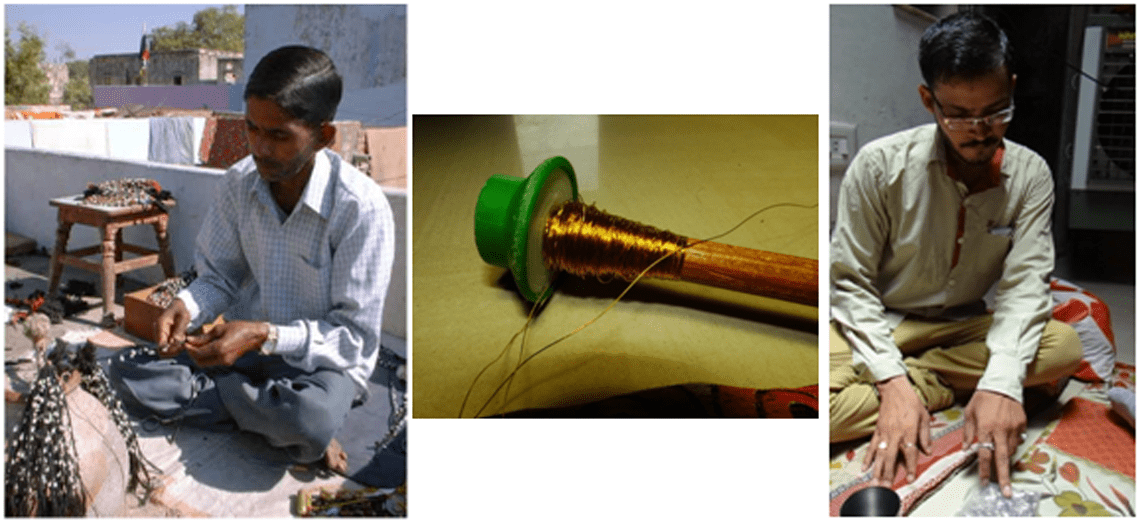
Artisans work in craft with using wooden stick with resham thread
Vishnu Kumar Patwa and his father Antiram Patwa is one of the master artisans of Patwa, who has been working with IICD since last few years, to teach the students and make them aware about the craft skills. They belong to the traditional Patwa family who have been doing the Patwa craft for last five generations. They belong to Kala Dera, 50 km from Jaipur, Rajasthan. The whole family is practicing this unique work for more than 80 years. They participate in various exhibitions at Delhi haat, DCH (Development Commissioner (Handicrafts) and craft tradition outlet.
Patwa is done with special knotting and wrapping technique with thread. In this technique, the craftsmen use multiple silk threads of various colors and entwine them together. These threads are further bound using beads.
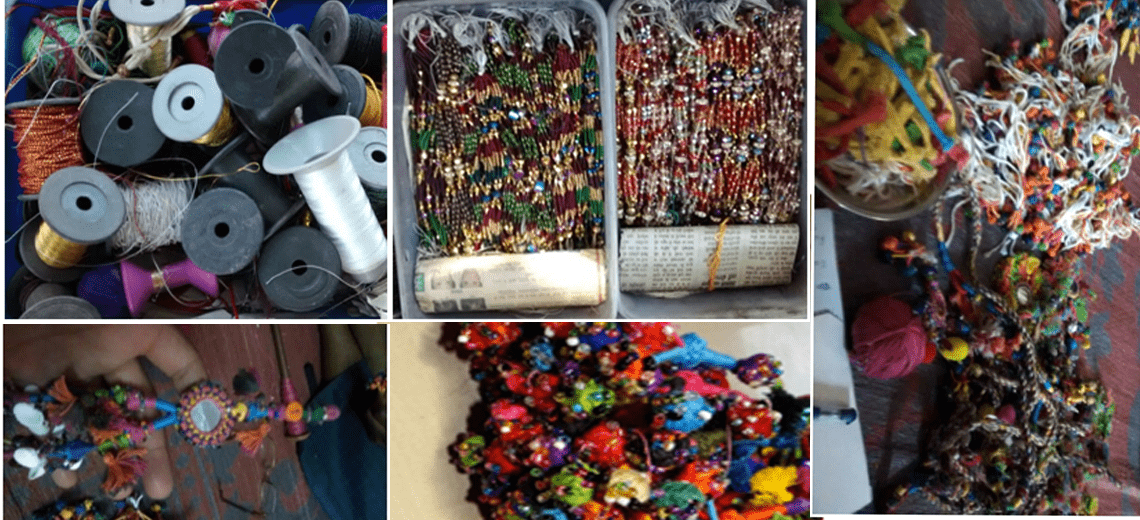



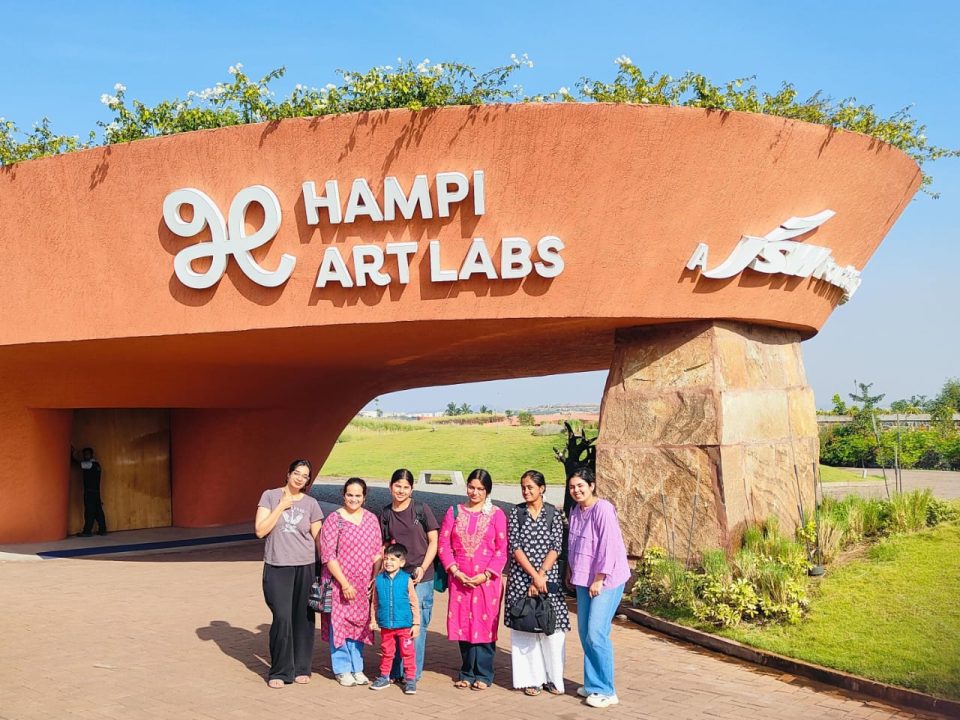
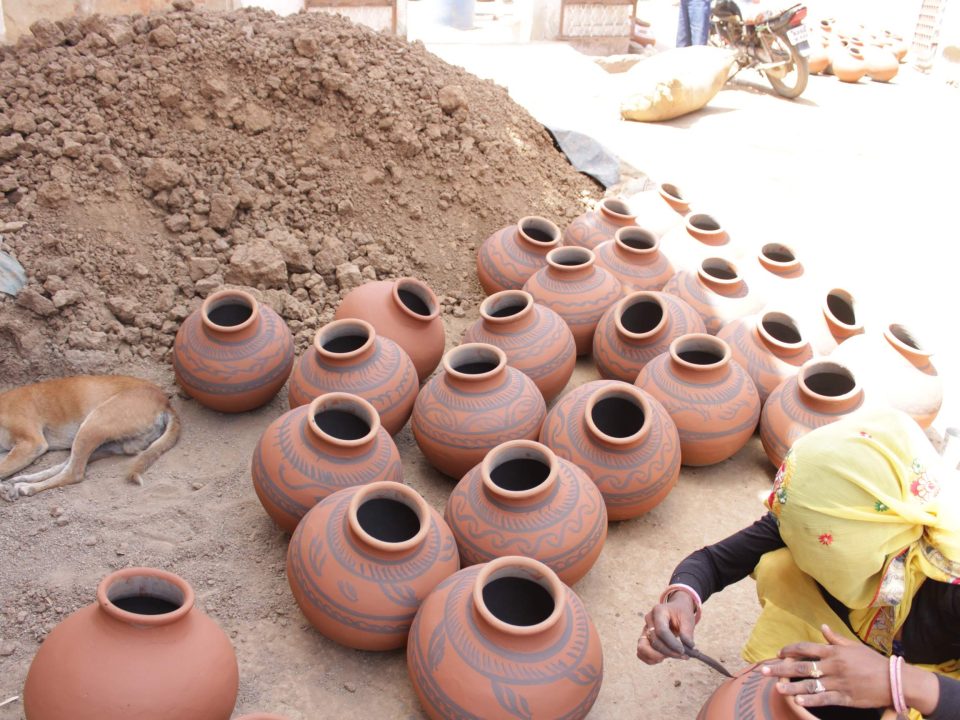
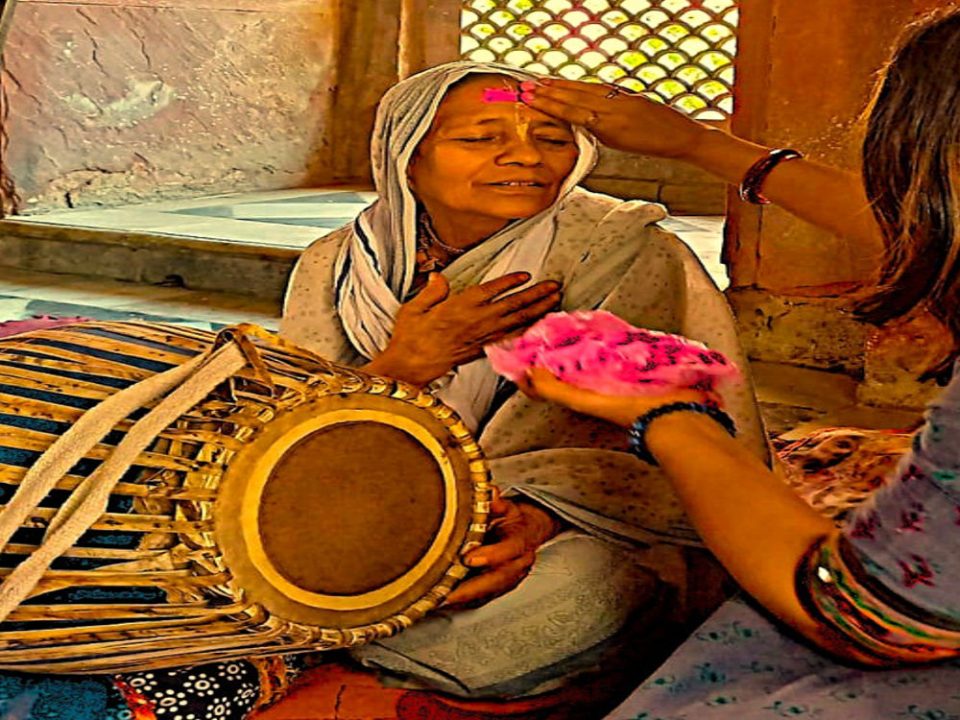
3 Comments
How can I get in touch with Vishnu Kumar Ji?
Very good knowledge
Aw, this was a really nice post. Spending some time annd actual effort to make
a superb article… but what can I say… I procrastinate
a lot and never manage to get anything done. https://ternopil.pp.ua